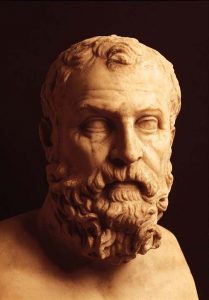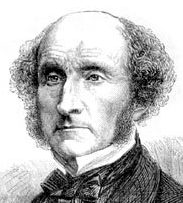
Solon was a 6th Century B.C. Athenian statesman. He was one of the Seven Sages of Greece, men renowned for their wisdom. In 594 B.C., Athens was dealing with acute social problems pitting the rich against the poor. Solon was appointed as archon (an annual chief ruler). He had comprehensive executive powers to resolve the crisis, and served as lawgiver. His reforms helped to prepare the way for the later introduction of democracy in Athens.
Solon crafted a new constitution based on the ownership of property. It established four divisions of people. It eliminated political privilege being determined by birth. All citizens groups could attend the general assembly. All Athenians could appeal to a jury and could serve on a jury.
Solon abolished the practice of a man’s freedom being pledged as loan collateral. This practice had previously led to the enslavement of many Athenians. In addition, he caused Athens to use government funds to buy back individuals from foreign slavery. He restored full citizenship to others enslaved in Athens. His use of written laws to protect all Greek-speaking men from slavery was the first articulation of political freedom in recorded western thought.
His constitution was relatively balanced and innovative. It contained many ingredients that would later form parts of democracy as we know it today. It became the basis for future Athenian governments.
The concept of property rights determining political rights bled into the U.S. Constitution in 1787. Solon’s solutions to the Athenian crisis struck a balance between democracy and oligarchy. The dangers of “faction” were reduced, as justice became available for both the rich and the poor. The problem of faction was famously the subject of James Madison’s Federalist No. 10, a problem that 21st century America continues to confront.
Solon believed that political participation was an obligatory duty of a citizen (and not merely a voluntary privilege). Although his reforms did not establish democracy, they were a necessary step toward democracy.
Solon remains generally viewed as a wise man with a reputation for probity. It is these qualities that our Solon will attempt to honor.
